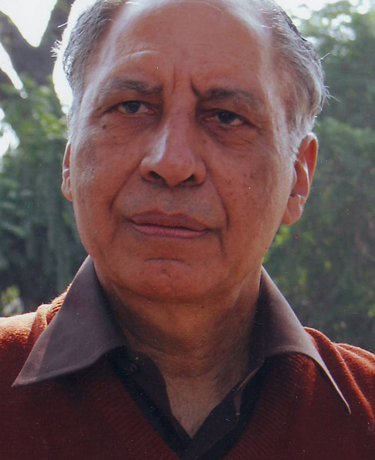Critical Analysis of On Friendship:
In order to understand this poem, it is important to understand the role that Almustafa plays in the source text The prophet. The Prophet is one who is in possession of a higher knowledge than the average human being. He is aware of the solution to the mysteries of this world, and he can also provide useful advice in order to make man’s life on earth better. Almustafa fulfils this role well. When the group that stops him from boarding the ship home asks him for his opinion on various aspects of human life and relationships, he does not so much provide new information as to make them keenly aware of what they already know in their hearts. He helps them see that they are also enlightened beings and they should be confident enough to be self-sufficient. That is what he does in this poem as well.
He defines friendship and also advises the men on how to treat their friends. He says that a friend is your resort, whom you can always depend on for the most basic of needs. He says that the absence of your friends should not upset you, but rather make you contemplate why you value him. He says that friendship can communicate nonverbally and that it ought to be unconditional. He also says that friendship is not something to pursue in your spare time but something that is an essential part of your life. He also says that friendship can provide relief from the adversities that life throws in our path. This is good advice and tells the men how to incorporate their friends into their lives and how to keep them there as well.
Stanza-wise Annotation of On Friendship:
Please note: N= noun, V=verb, Adj=Adjective, Adv=Adverb, P=Preposition
1st stanza:
Sow (V): Plant (seed) by scattering it on or in the earth
Reap (V): Cut or gather (a crop or harvest)
Thanksgiving (N): The expression of gratitude, especially to God
Board (N): The provision of regular meals when one stays somewhere, in return for payment or services
Seek (V): Attempt to find (something)
2nd stanza:
Nay: An older form of the word “no”
Withhold (V): Refuse to give (something that is due to or is desired by another)
Ay: Said to express assent; yes
Ceases (V): Third person present tense of the word “cease”, that is, come or bring to an end
Desires (N): Plural form of the word “desire”, that is, a strong feeling of wanting to have something or wishing for something to happen
Expectations (N): Plural form of the word “expectation”, that is, a strong belief that something will happen or be the case
Unacclaimed (V): Not respected or praised
Grieve (V): Feel intense sorrow
Clearer (Adj): Comparative form of the word “clear”, that is, easy to perceive, understand, or interpret
Spirit (N): The non-physical part of a person which is the seat of emotions and character; the soul
Aught (N): Anything at all
Disclosure (N): The action of making new or secret information known
Unprofitable (Adj): (Of an activity) not beneficial or useful
3rd stanza:
Ebb (N): The movement of the tide out to sea
Tide (N): The alternate rising and falling of the sea, usually twice in each lunar day at a particular place, due to the attraction of the moon and sun
Pleasures (N): Plural form of the word “pleasure”, that is, a feeling of happy satisfaction and enjoyment
Dew (N): Tiny drops of water that form on cool surfaces at night, when atmospheric vapour condenses
Refreshed (V): Past participle form of the word “refresh”, that is, to give new strength or energy to; reinvigorate
Poetic Devices in On Friendship:
Rhyme scheme:
The poet does not follow any identifiable rhyme scheme in this poem.
Rhetorical devices:
Apostrophe:
This rhetorical device is used when a poet addresses his or her poem to an absent audience. In this poem, the poet uses the device of apostrophe as Almustafa is here seen speaking to a member of the group that has stopped him from boarding the ship to his home, but we never see anyone responding to Almustafa’s words.
Metaphor:
This rhetorical device is used when a covert comparison is made between two different things or ideas. In this poem, the poet uses the device of metaphor in the 2nd and 3rd lines of the 1st stanza when he compares a friend to a field and to an inn providing a warm fire, and a place to eat and sleep. He again uses it n the 10th and 11th lines of the 2nd stanza when he compares love that is not unconditional with a net. He uses it for the last time in the 2nd line of the 3rd stanza when he compares a little spare time with ebbing tide and ample free time with flood.
Simile:
This rhetorical device is used when an overt comparison is made between two different things. In this poem, the poet uses the device of simile in the 7th and 8th lines of the 2nd stanza when the poet compares the way in which the absence of your friend can become clearer in his absence with the way in which a mountain affords a clearer view from the plains, and also uses the word “as” while making this comparison.
Central Idea of On Friendship:
Almustafa is asked his opinion on friendship and he defines friendship in reply. He says that your friend is like an inn where you can find rest and refreshment after a long day’s travelling. You should be able to communicate with your friend even without speaking. You should value your friend in his presence and his absence as well. You should meet your friend not only in your spare time, but in your free time as well. Finally, friendship can provide relief from the cruelties that life imposes upon you.
Themes of On Friendship:
Friend as an inn:
Almustafa says that just as a traveller must take board and lodging in an inn after travelling the whole day, we also have a place to go to when we are tired and in need of rejuvenation. That place is the home of a friend. A friend can fulfil even our most basic needs, and hence, we can always depend upon him.
Honesty in friendship:
Almustafa says that friends should always be honest with each other. Friends should be able to ask each other questions without having to think that they might get a dishonest reply. That is why when our friends ask us something, we should say no when we disapprove, and say yes where we believe approbation is required.
Friendship as non-verbal pact:
Friendship is a bond between two people, but that bond is not just forged through words. Friends can also communicate non-verbally. Even in silence, their hearts are able to detect each other’s needs, wishes and expectations, and to fulfil all of these as well.
Absence makes the heart grow fonder:
This common adage means that the absence of our friends should not upset us. Rather it should serve to bring us closer to them since their absence provides us with an opportunity to contemplate what we miss the most about them.
Friendship as an essential part of life:
Almustafa says that friendship is not something we should pursue in our spare time. Rather it should occupy an essential position in our lives. We should always make time for friends rather than endeavour to meet them when we have time.
The Tone of On Friendship:
The tone of this poem is slightly didactic, but in no way preachy. Almustafa fulfils his role as prophet but does not try to impose his teachings on his listeners. Instead he offers genial advice that can prove to be beneficial to his listeners.
Conclusion:
“On Friendship” is one of the most popular pieces of The Prophet. That is because it concerns an aspect of human life that all readers are familiar with. This book was released in the 60s, a rather turbulent time in modern American history. This was an era of revolutions. The younger generation were finding more and more reasons to rebel against the old order and reform it in order to give birth to a new dawn, to make the world a more liberal place. Most of them had little or no support from their families. The only people they could depend on were their friends or their peers, who shared the same kind of mindset at them. At such a time, such a positive message affirming the necessity of friends in human life was a welcome one. That is why Gibran was so beloved of contemporary readers – because he was able to capture the pulse of the age in which he lived.
Some online learning platforms provide certifications, while others are designed to simply grow your skills in your personal and professional life. Including Masterclass and Coursera, here are our recommendations for the best online learning platforms you can sign up for today.
The 7 Best Online Learning Platforms of 2022
- Best Overall: Coursera
- Best for Niche Topics: Udemy
- Best for Creative Fields: Skillshare
- Best for Celebrity Lessons: MasterClass
- Best for STEM: EdX
- Best for Career Building: Udacity
- Best for Data Learning: Pluralsight









